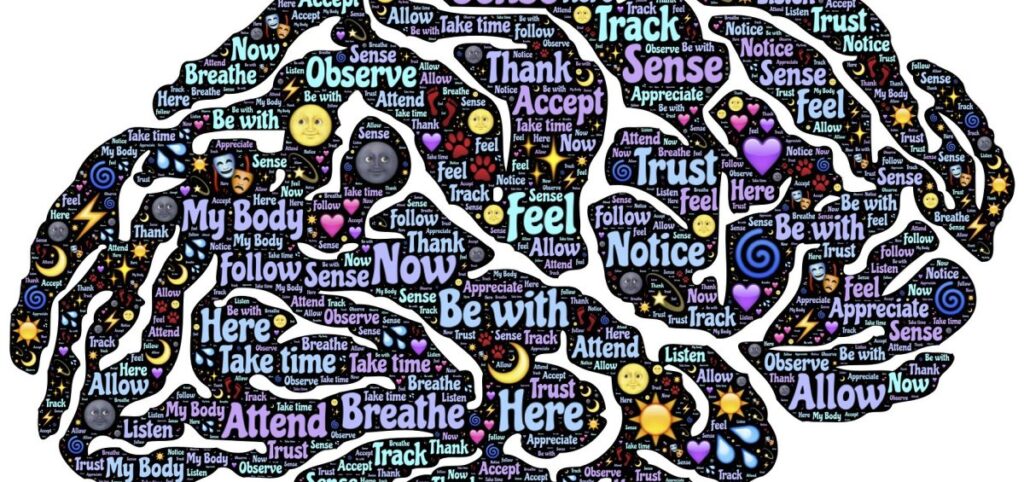Manifest ADHD Mindfulness: 6 Magnificent Methods
So what is ADHD Mindfulness? The first thing someone with ADHD will tell you is that staying focused, organized, and productive makes it very challenging. What’s an entrepreneur to do! The constant barrage of distractions and the need to juggle multiple tasks simultaneously can make staying present and in the moment challenging. Lucky for us, some practices can help manage the situation, such as mindfulness! Fortunately, practicing mindfulness can help to manage symptoms of ADHD and improve overall well-being. How do we do this? Read further, my friends! What is ADHD Mindfulness? Mindfulness is a practice that involves being present and aware of the present moment without judgment. For individuals with ADHD, practicing mindfulness can help to reduce distractibility, improve focus, and increase productivity. It can also help to reduce stress and increase feelings of calm and relaxation. 1) Meditation One practice for ADHD Mindfulness is meditation. Meditation is a powerful tool for improving focus and concentration. Even just a few minutes of meditation a day can be beneficial for reducing symptoms of ADHD. There are many different types of meditation, so it’s crucial to find the one that works best for you. Some people find using a guided meditation app or attending a meditation class helpful. To meditate, find a quiet place where you won’t be interrupted. Sit or lie down in a comfortable position, and close your eyes. Focus your attention on your breath, and try to keep your mind from wandering. When your mind does wander, gently bring your attention back to your breath. 2) Breathing exercises Another practice to implement ADHD Mindfulness is breathing exercises. Breathing exercises are another simple way to practice ADHD mindfulness. Focusing on your breath can help to calm the mind and improve focus. One easy breathing exercise is to take a few deep breaths and focus on the sensation of air moving in and out of your body. If your mind starts to wander, gently bring your attention back to your breath. Another breathing exercise that can be helpful for ADHD Mindfulness is called “box breathing.” To practice box breathing, inhale for four counts, hold your breath for four counts, exhale for four counts, and hold your breath for four counts before starting the cycle over again. 3) Mindful movement Mindful movement practices, such as yoga or tai chi, can be helpful for ADHD entrepreneurs. These practices can help to improve focus, reduce stress, and increase flexibility. They can also help to improve body awareness and posture, which can be especially helpful for individuals who spend a lot of time sitting at a desk. To practice yoga or tai chi, find a class or an online video that works for you. Start with a beginner class and work your way up as you become more comfortable with the practice. 4) Mindful eating Eating mindfully involves paying attention to the taste, texture, and sensation of food as you eat it. This practice can help to reduce overeating, improve digestion, and increase awareness of hunger and fullness cues. For ADHD entrepreneurs who tend to eat on the go or in front of a screen, practicing mindful eating can be especially helpful. To practice mindful eating: Take time to sit down and eat your meal without any distractions. Focus on the food’s taste, texture, and sensation, and try to eat slowly and mindfully. Pay attention to your body’s hunger and fullness cues, and stop eating when you feel satisfied. 5) Practice Gratitude One of the most powerful practices of ADHD mindfulness is practicing gratitude. Gratitude can help to shift your focus away from negative thoughts and increase feelings of happiness and contentment. To practice gratitude, take a few minutes each day to reflect on the things in your life that you are thankful for. This could be anything from a supportive friend to a beautiful sunset. To make gratitude a habit, write down three things you are grateful for daily in a journal. This can help reinforce positive thinking and increase happiness and contentment. 6) Mindful listening Mindful listening involves giving full attention to the person you speak with without distraction or interruption. For ADHD entrepreneurs who may struggle with listening and staying present during conversations, practicing mindful listening can be helpful. It can improve communication, build stronger relationships, and reduce misunderstandings. To practice mindful listening: Find a quiet place to have a conversation with someone. Turn off any distractions, such as your phone or computer, and give the person your full attention. Focus on what they are saying, and avoid interrupting or thinking about what you want to say next. Practicing mindfulness can be an effective way for ADHD entrepreneurs to manage symptoms, improve focus, and increase productivity. There are many different mindfulness practices, so finding the ones that work best for you is essential. With consistent practice, mindfulness can help to improve overall well-being and lead to greater success in both work and life. So, how else can ADHD mindfulness be used to get in focus and skyrocket your productivity? The answer is to call Dr. Get in Focus; he can show you! To set up your free appointment, click here on the link! https://calendly.com/dr_work_from_home/get-in-focus-vip-session-clone Dr. Get in Focus works with businesses, entrepreneurs, and remote workers to get in focus and skyrocket their productivity. He is here to talk to see if he can help. His website is https://plusultrava.com to take advantage of his training programs. Check https://getinfocusworkshop.plusultrava.com/ for the latest workshop. Don’t wait; get in focus today!
Manifest ADHD Mindfulness: 6 Magnificent Methods Read More »




